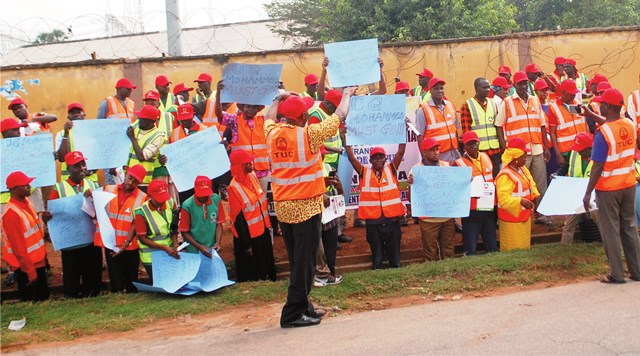Oil & Energy
Oil Marketers Decry High Petrol Price

Many oil marketers are closing shop as they are not making a profit due to the high cost of Premium Motor Spirit being sold to them by the Nigerian National Petroleum Corporation (NNPC), the Depot and Petroleum Products Marketers Association of Nigeria (DAPPMAN) has said.
DAPPMAN said a lot of jobs have been lost due to the shutdown of businesses by oil marketers, adding that this may trigger a widespread petrol crisis in the sector if not handled adequately.
The association’s Executive Secretary, Olufemi Adewole, told The Tide source that the increase in the price of PMS by NNPC to DAPPMAN members from N111 per litre to N117 had put a severe strain on the operations of oil marketers.
“The increase from N111 per litre to N117 was done by the NNPC since over a year and marketers have been finding it tough, which is why most marketers are no longer in business. I have written letters several times that it should be reversed and that is why a lot of marketers are no longer importing,” he said.
Adewole stated that most marketers were not making a profit and when asked why they had remained in the business of PMS sale despite incurring losses, he replied, “There are margins for the dealer, retailer, etc, and it is from the addition of these margins that a depot owner works out his income.
“If those margins cannot cover my cost viz-a-viz landing cost of the product, that means it is not profitable. For instance, as of May 11, 2019, or around that time, the landing cost of PMS was over N200 per litre. Now you are telling me to bring in a product which sells above N200 and you want me to sell at N145.” He added: “If that happens, who bears the cost of the difference between N200 and N145? These are the issues. Also, the foreign exchange concern is there, as the rate of the United States dollar is different when you check the official rate at the CBN and the unthey still maintained that the pump price should be N145. Now, who bears that difference between N111 and N117?
Oil & Energy
NCDMB Unveils $100m Equity Investment Scheme, Says Nigerian Content Hits 61% In 2025 ………As Board Plans Technology Challenge, Research and Development Fair In 2026

Oil & Energy
Power Supply Boost: FG Begins Payment Of N185bn Gas Debt

In the bid to revitalise the gas industry and stabilise power generation, President Bola Ahmed Tinubu has authorised the settlement of N185 billion in long-standing debts owed to natural gas producers.
The payment, to be executed through a royalty-offset arrangement, is expected to restore confidence among domestic and international gas suppliers who have long expressed concern about persistent indebtedness in the sector.
According to him, settling the debts is crucial to rebuilding trust between the government and gas producers, many of whom have withheld or slowed new investments due to uncertainty over payments.
Ekpo explained that improved financial stability would help revive upstream activity by accelerating exploration and production, ultimately boosting Nigeria’s gas output adding that Increased gas supply would also boost power generation and ease the long-standing electricity shortages that continue to hinder businesses across the country.
The minister noted that these gains were expected to stimulate broader economic growth, as reliable energy underpins industrialisation, job creation and competitiveness.
In his intervention, Coordinating Director of the Decade of Gas Secretariat, Ed Ubong, said the approved plan to clear gas-to-power debts sends a powerful signal of commitment from the President to address structural weaknesses across the value chain.
“This decision underlines the federal government’s determination to clear legacy liabilities and give gas producers the confidence that supplies to power generation will be honoured. It could unlock stalled projects, revive investor interest and rebuild momentum behind Nigeria’s transition to a gas-driven economy,” Ubong said.
Oil & Energy
The AI Revolution Reshaping the Global Mining Industry

-

 Politics3 days ago
Politics3 days agoEFCC Alleges Blackmail Plot By Opposition Politicians
-
Business3 days ago
AFAN Unveils Plans To Boost Food Production In 2026
-

 Sports3 days ago
Sports3 days agoJ And T Dynasty Set To Move Players To Europe
-
Business3 days ago
Industrialism, Agriculture To End Food Imports, ex-AfDB Adviser Tells FG
-
Politics3 days ago
Datti Baba-Ahmed Reaffirms Loyalty To LP, Forecloses Joining ADC
-
Politics3 days ago
Bayelsa APC Endorses Tinubu For Second Term
-
Business3 days ago
Cashew Industry Can Generate $10bn Annually- Association
-

 Entertainment3 days ago
Entertainment3 days agoAdekunle Gold, Simi Welcome Twin Babies

